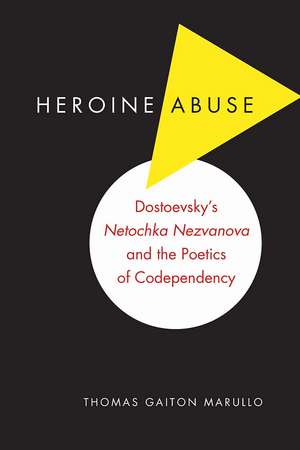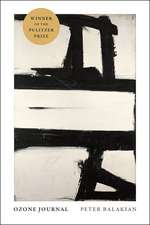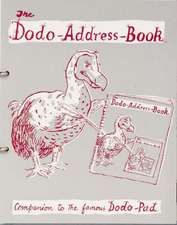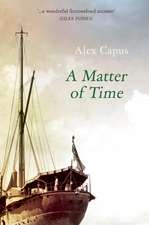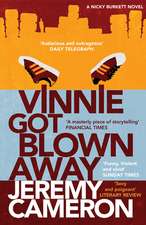Heroine Abuse: Dostoevsky's "Netochka Nezvanova" and the Poetics of Codependency
Autor Thomas Gaiton Marulloen Limba Engleză Paperback – 14 oct 2015
Fyodor Dostoevsky’s first novel, Netochka Nezvanova, written in 1849, remains the least studied and understood of the writer’s long fiction, but it was a seedbed for many topics and themes that became hallmarks of his major works. Specifically, Netochka Nezvanova was the first in Dostoevsky’s corpus to focus on the psychology of children and the first to feature a woman in a leading and narrative role. It was also the first work in Russian literature to deal with problems of the family.
In Heroine Abuse, Thomas Marullo contends that Netochka Nezvanova also provides a striking example of what psychologists today call codependency: the ways—often deviant and destructive—in which individuals bond with people, places, and things, as well as with images and ideas, to cope with the vicissitudes of life. Marullo shows how, at age twenty-eight, Dostoevsky intuited and illustrated the workings of “relationship addiction” almost a century and a half before it became the scholarly focus of practitioners of mental health.
The moral monsters, “infernal” women, children-adults, and adult-children who populate Netochka Nezvanova seek codependence in people, places, and things, and in images, ideas, and ideals to satiate cravings for love, dominance, and control, as well as to indulge in narcissism, sexual perversion, and other aberrant or alternative behaviors. (Indeed, in no other work would Dostoevsky examine such phenomena as pedophilia and lesbianism with such abandon.) Racing from tie to tie, bond to bond, and caught in a debilitating loop that they claim to detest, but sadomasochistically enjoy, the characters in Netochka Nezvanova wreak havoc on themselves and the world. They do so, moreover, with impunity, their addictions moving them from momentary exultation as self-styled extraordinary men and women, through prolonged darkness and despair, and once again, to old and new addictions for physical and emotional release.
Readers of Heroine Abuse will see Netochka Nezvanova as a timeless model in depicting codependency in the world of the twenty-first century as it did in St. Petersburg in 1849. Marullo’s original work will appeal to scholars and students of Russian and comparative fiction; to doctors, psychologists, and therapists; to laymen and women interested in relationship addiction; and, finally, to codependents and relationship addicts of all types.
In Heroine Abuse, Thomas Marullo contends that Netochka Nezvanova also provides a striking example of what psychologists today call codependency: the ways—often deviant and destructive—in which individuals bond with people, places, and things, as well as with images and ideas, to cope with the vicissitudes of life. Marullo shows how, at age twenty-eight, Dostoevsky intuited and illustrated the workings of “relationship addiction” almost a century and a half before it became the scholarly focus of practitioners of mental health.
The moral monsters, “infernal” women, children-adults, and adult-children who populate Netochka Nezvanova seek codependence in people, places, and things, and in images, ideas, and ideals to satiate cravings for love, dominance, and control, as well as to indulge in narcissism, sexual perversion, and other aberrant or alternative behaviors. (Indeed, in no other work would Dostoevsky examine such phenomena as pedophilia and lesbianism with such abandon.) Racing from tie to tie, bond to bond, and caught in a debilitating loop that they claim to detest, but sadomasochistically enjoy, the characters in Netochka Nezvanova wreak havoc on themselves and the world. They do so, moreover, with impunity, their addictions moving them from momentary exultation as self-styled extraordinary men and women, through prolonged darkness and despair, and once again, to old and new addictions for physical and emotional release.
Readers of Heroine Abuse will see Netochka Nezvanova as a timeless model in depicting codependency in the world of the twenty-first century as it did in St. Petersburg in 1849. Marullo’s original work will appeal to scholars and students of Russian and comparative fiction; to doctors, psychologists, and therapists; to laymen and women interested in relationship addiction; and, finally, to codependents and relationship addicts of all types.
Preț: 300.90 lei
Nou
Puncte Express: 451
Preț estimativ în valută:
57.58€ • 60.29$ • 47.76£
57.58€ • 60.29$ • 47.76£
Carte tipărită la comandă
Livrare economică 10-24 aprilie
Preluare comenzi: 021 569.72.76
Specificații
ISBN-13: 9780875807201
ISBN-10: 0875807208
Pagini: 260
Dimensiuni: 152 x 229 x 20 mm
Greutate: 0.32 kg
Ediția:1
Editura: Northern Illinois University Press
Colecția Northern Illinois University Press
ISBN-10: 0875807208
Pagini: 260
Dimensiuni: 152 x 229 x 20 mm
Greutate: 0.32 kg
Ediția:1
Editura: Northern Illinois University Press
Colecția Northern Illinois University Press
Recenzii
"[Its] clear structure, its copious notes and references to scholarship, along with Marullo’s extremely close reading, result in this monograph becoming a primary source on Netochka Nezvanova for scholars of Russian literature."
—Slavic and East European Journal
“This is a beautifully and compellingly written study of codependency, using literary materials supplied by an early novel by Dostoevsky. The writing is crisp and pulls the reader along. Marullo’s voice is authoritative and compassionate.”
—Lorne Tepperman, University of Toronto
“Heroine Abuse goes a significant way towards restoring Netochka Nezvanova to its rightful place in Dostoevskii’s oeuvre.” – Slavonic and East European Review
—Slavic and East European Journal
“This is a beautifully and compellingly written study of codependency, using literary materials supplied by an early novel by Dostoevsky. The writing is crisp and pulls the reader along. Marullo’s voice is authoritative and compassionate.”
—Lorne Tepperman, University of Toronto
“Heroine Abuse goes a significant way towards restoring Netochka Nezvanova to its rightful place in Dostoevskii’s oeuvre.” – Slavonic and East European Review
Notă biografică
Thomas Gaiton Marullo is professor of Russian and Russian literature at the University of Notre Dame. His major works include: Ivan Bunin: Russian Requiem (1885–1920), Ivan Bunin: From the Other Shore (1920–1933), Ivan Bunin: Twilight of Emigre Russia (1934–1953), If You See the Buddha: Studies in the Fiction of Ivan Bunin, Cursed Days: Diary of a Revolution,The Liberation of Tolstoy: A Tale of Two Writers, About Chekhov: The Unfinished Symphony, and Petersburg: The Physiology of a City.
